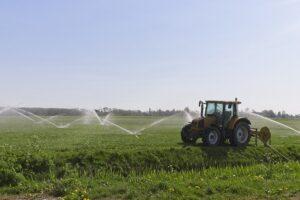The European Parliament has accepted proposals to reduce the burden on farmers
As a result of the European farmers’ protests, the European Parliament approved the simplification of the Common Agricultural Policy (CAP), which primarily serves to reduce the burden on farmers. Our country also had a number of proposals resulting in burden reduction, which significantly mitigate the production limitation and administrative obligations that put agricultural producers in a difficult situation.

(Photo: Pixabay)
The dissatisfaction of the European Union business community and the experiences of the first year of the implementation of the KAP Strategic Plans made it clear that adjustments are needed for the effective implementation of the strategies. For these, the regulation had to be reviewed and simplified at the same time, so that the member states could adapt their support system to the real needs of agricultural producers, giving more flexibility for the effective performance of farming activities. It is necessary to take into account the growing challenges facing the players of the sector, which can be seen primarily in the unpredictability of the weather, market and economic uncertainties.
Following the decision of the European Parliament, the member states will have the opportunity to create their rules even in the 2024 application period in such a way that they give farmers more room for maneuver to implement their production practices.
Hungary has already voiced its proposals on numerous occasions and at the right time, but following this rather late decision, it can now finally enforce them starting this year, which it still has a chance to do. It is a significant result that many of the key elements of the Hungarian proposals were accepted. An example of this is that inspections and sanctions that impose a disproportionate burden on small farms are introduced in two years. Another result is that decommissioning, which limits production and thus causes a significant competitive disadvantage compared to Russian-Ukrainian production, can be removed from the mandatory support conditions, while it remains a subsidized option for those who undertake it voluntarily for environmental or economic reasons.
AM
Related news
József Viski: Adaptation and competitiveness are key for the horticultural sector
🎧 Hallgasd a cikket: Lejátszás Szünet Folytatás Leállítás Nyelv: Auto…
Read more >In 2025, FruitVeB considered the support and professional coordination of the TÉSZs as its priority task
🎧 Hallgasd a cikket: Lejátszás Szünet Folytatás Leállítás Nyelv: Auto…
Read more >Related news
HELL CITY has arrived, led by Michele Morrone
🎧 Hallgasd a cikket: Lejátszás Szünet Folytatás Leállítás Nyelv: Auto…
Read more >Two million people have already voted, so 57 million forints will be given to locals in 125 settlements, courtesy of Tesco
🎧 Hallgasd a cikket: Lejátszás Szünet Folytatás Leállítás Nyelv: Auto…
Read more >








